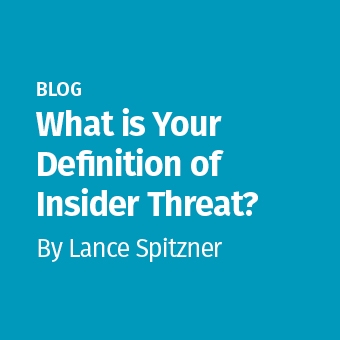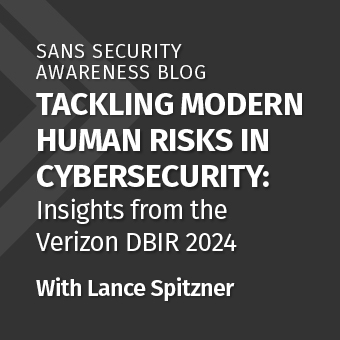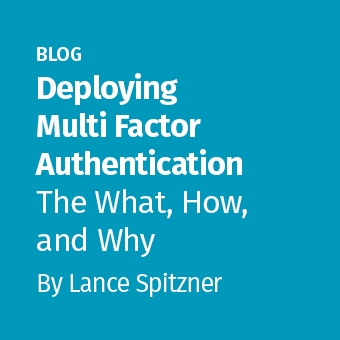Tags:
When applying adult learning methodologies to your security awareness training strategy, there’s a myriad of factors to keep balanced. In fact, understanding the psychology of learning continues to be a common struggle for security awareness professionals. You’ve got to keep several things in mind, such as your organization’s culture, your access to particular resources, your audience’s foundational knowledge or knowledge gap, the overall preferred training delivery, and even the existing generational differences within your organization.
Generational differences, which can vary greatly depending on company size or corporate culture, can make a huge difference in the way you approach instructional design methodologies. Why? Because the workforce is seeing a significant generational shift. Baby boomers (individuals born between 1946-1964) are inching closer toward retirement, while generations like Generation X (individuals born between 1965-1980) and millennials (individuals born between 1980-1996) are in the primes of their careers. In fact, it was reported in 2018 that more than one-in-three American labor force participants (35%) are millennials, making them the largest generation in the U.S. labor force, according to a Pew Research Center analysis of U.S. Census Bureau data.
“But aren’t millennials disloyal?”
“But aren’t millennials lazy?”
“But don’t millennials just expect a handout?”
There are a lot of misconceptions about millennials and their work ethic or learning style. Whatever your outlook is on a millennial’s work style or their contribution to the workplace, there is a growing need to give this specific generational demographic the attention it needs when developing a security awareness training program.
As training architects, security awareness professionals, and learning design experts, how can we avoid some of our own assumptions when designing training for the different generations that represent the workforce, more specifically, millennials? Here’s a list of some common myths associated with millennials and steps you can take to avoid erroneous assumptions about the generational differences in your workplace. It could make a big difference in the way you develop your security awareness program:

1. “Millennials are not loyal.”
It is very common to hear training professionals moan about millennials. They’ll claim that this specific generation is not loyal to the company like previous generations have been. Meaning, they’re not worth investing company time, finances, or energy into. This line of thinking could lead people to develop training that is cheap or quick because why take the time to properly train a workforce if they are just going to leave, right?
To a certain extent, I can relate to this approach. I certainly wouldn’t want to budget for extensive training, only to have it be wasted on a millennial job-hopper. However, studies showthat millennials are leaving jobs at about the same rate as baby boomers did at the same age.
The truth here is that every generation tends to move jobs. They generally do it more often when entering the job market to establish experience, while it generally tapers off as they gain more experience. There will always be a percentage of unhappy employees who choose to leave a job, but this should not impede on your investment in robust and effective security awareness training programs.
Are we trying too hard to design quicker, cheaper training? Or should we actually be investing our energy and resources into building better strategies and conducting a better analysis of our audience to help reduce turnover and train a team for long-term success? We will always have some who leave a job, but don’t take it personally. The individuals who stay will be properly prepared because we spent the time to really give them the skills to perform their job successfully, ultimately not only becoming an advocate for your company, but for security awareness as well. Isn’t that the goal, anyway?

2. “Millennials are digital natives, so training should always be online and short.”
Yes, millennials and Generation Z (the generational cohort after millennials, generally born between the mid-1990s to the early-2000s) associates are regarded as digital natives, meaning they grew up online and had easier access to digital technologies. Technology was integrated into all facets of their lives, including research, socializing, and, many times, education.
Having grown up with laptops, smart phones, and tablets, millennials are typically well-versed in technology and utilize technology to the fullest. For this reason, training experts often fall back on technology as the primary deployment method for training a millennial-heavy workforce. Many times this is a good approach. E-Learning is typically cheaper and globally accessible at any time. It is also flexible, offering employees the ability to take training when it is most convenient for them.
However, don’t just expect if you build it, they will come. Just because training is delivered in a digital channel does not mean it will resonate with millennials or even be an effective solution. The biggest mistake I see in the training of digital natives is assuming that if they can navigate a smartphone or mobile computing system, they will understand the program’s content quicker and more easily through a digital format.
If we were teaching a class on how to use a smartphone, we might expect a millennial employee to understand the concepts fairly quickly. However, if the concept is new or not necessarily a digitally-based skill, such as building client relationships, the chance that a millennial would understand it better than a baby boomer or any other generation because the training is merely in a digital format is simply false. At the end of the day, it is the content that matters.
Some training teams will quickly convert an instructor-led PowerPoint presentation into an e-Learning module in an effort to produce training rapidly and cater to the millennial’s assumed preference for digital-based learning. Many times the digital-based course is generated from a training program that was successful as an instructor-led course, but may not translate well into a digital e-Learning course.
Based on the myth, trainers will assume a digital presentation is the preferred learning format by millennials because it is flexible, digital, and easy to access. However, we can’t forget to ask ourselves while designing training: Will this training be as successful and as effective if it is only delivered on a digital platform? We might overlook the supplemental role the instructor from the original training could play in adding elements to the class that are not as easily replicated in a digital version. Don’t just assume that digital natives will be able to pick up on all facets of the training if it is delivered in a different format than initially intended. Try conducting an in-depth analysis of courses that may be delivered in two different ways to identify what is working and what is not at your organization.
While millennials and their ability to use technology can open many possibilities in training, training built for any generation should still be scrutinized for its effectiveness, regardless of the delivery method.

3. “Millennials are just lazy.”
The world around us is constantly changing. How some things were done in the past is, most times, not how a younger generation might be doing those things today. Technology is making many tasks easier and is evolving at an even faster rate. Because of their history of growing up around technology and devices, millennials tend to be early adopters of technological advances and become reliant on technology for many things.
For example, if self-driving cars became commonplace and millennials adopted this mode of transportation, it could be seen by older generations as being lazy that the younger generation can’t even drive their own cars. To the younger generation, it is seen as a way to save time, establish safer roads, and improve efficiency. They can get more done in the time they used to spend driving.
This is also true when it comes to training the millennial workforce. They prefer training that is effective and efficient. This is not because they are lazy, but instead because they do not see a benefit to drawn out training they are expected to remember several months from when they were trained, especially with the other demands of their day-to-day job tasks.
A good example of this is when a company spends hours, even days onboarding new hires. They’ll often dedicate time detailing every unique phrase and terminology associated with their business. What makes more sense for this audience is to touch on all terms quickly, empowering the millennial learner to use a reference guide or even online tools to refresh their knowledge at the time they need it.
Adult learners, no matter what generation defines them, want to have the choice in what they learn and how they learn it. Giving them the power to teach themselves at the time they need it will increase knowledge retention. This is an incredibly powerful insight for us as learning experts. Design your training on the premise that learners are intrinsically motivated and prefer to choose what they want to learn and when. They want a more hands-on approach. You’ll most likely lose their attention if you try to force every detail. Focus on the key steps and give them the tools to self-teach.
Conclusion
As training professionals, we can get caught up with societal assumptions, which can create avoidable roadblocks in the designing process for security awareness training. But when we rely on our tried and true frameworks such as ADDIE, and conduct quality analyses of an audience, we will be successful, no matter who the audience is.
There will always be associate turnover. That doesn’t mean you should decrease the quality of your training. Just because the millennial workforce was brought up on digitally-driven technologies, doesn’t mean you should compromise effective training techniques to appease a digitally-focused generation. And finally, your learners aren’t lazy. So, don’t create lazy work.
Good analysis could lead to technology-based strategies such as gamification or augmented reality, but when conducted properly it can show that the simplest solution can sometimes be the most successful.



